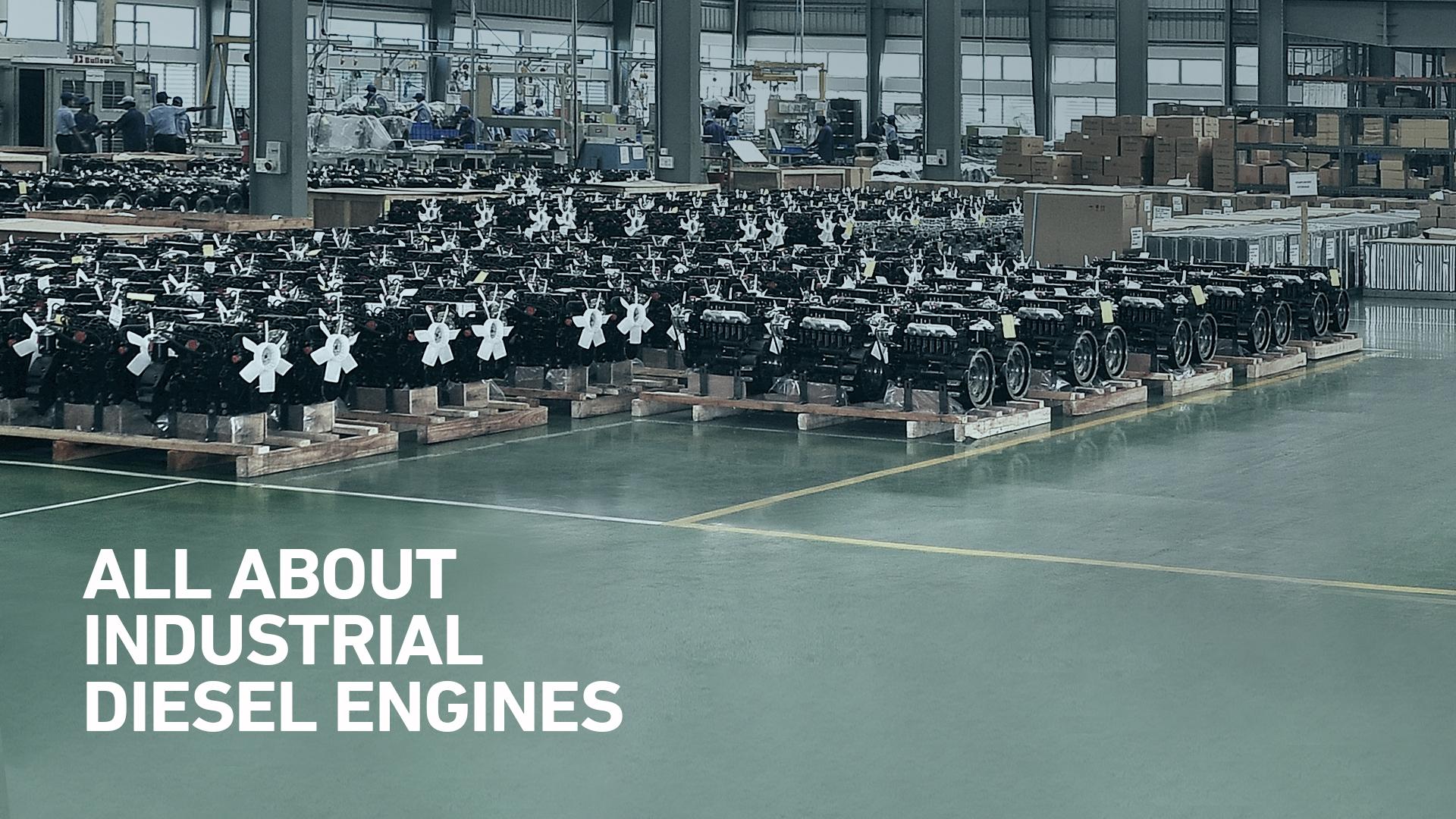All About Industrial Diesel Engines

Index
Mighty in size and mightier in impact, that would be one of the many ways to describe these colossal giants we know as Industrial Diesel Engines. It wouldn’t be wrong to say that they are the unsung heroes behind the functioning of almost every industry. From remote construction sites to massive manufacturing plants, these prime movers are an indispensable part of every sector.
In this blog, we will talk in-depth about key features and applications these engines have to offer.
Salient Features
- Fuel Efficiency
- High Torque Output
- Durability
- Versatility
Fuel Efficiency
Industrial diesel engines are known for their superior fuel efficiency. This becomes a crucial factor in decreasing the overall operational costs of any industry. By extracting more energy from each drop of diesel, they produce higher output as compared to their counterparts. This becomes possible with the help of advanced fuel injection systems, precision timing, and an optimised combustion process.
High Torque Output
A lot of rugged and heavy-duty work is expected of engines in industrial applications. To achieve this, it is imperative for them to produce a lot of torque. This is where diesel engines rule the roost. With high compression ratios, they deliver exceptional torque, allowing them to handle heavy loads, power hydraulic systems, and drive industrial machinery efficiently.
Durability
Durability is one of the most striking characteristics of these marvels. They are designed with robust components such as forged steel crankshafts, cast iron blocks, and much more. With processes like precision casting, heat treatment, and surface hardening, diesel engine manufacturers ensure the final product is capable of withstanding the most challenging of environments.
Versatility
One key advantage of these engines is that they are adaptable, allowing them to meet diverse requirements across a range of industries. From powering tractors and mini excavators to driving generators and pumps, they blend seamlessly, giving satisfactory performance every time. Whether operating in extreme climates, remote locations, or highly specialised environments, you can always count on diesel engines to excel.
Now that we have talked about the advantages that diesel-powered engines bring to the table, let’s talk in-depth about their applications and the myriad industries they serve.
Major Applications
- Construction Industry
- Agriculture
- Mining
- Marine
- Power Generation
Construction Industry
When it comes to the construction sector, diesel engines serve as the backbone of operations, powering essential equipment like excavators, bulldozers, loaders, and cranes. Be it digging foundations, moving tons of material, or lifting heavy loads, you can also count on them to serve the purpose.
Agriculture
In the agriculture sector, these engines are chiefly used to propel tractors, enabling them to perform a wide range of tasks such as plowing, tilling, planting, and harvesting. Their unmatched ability to deliver high torque ensures tractors are well-equipped to handle heavy implements. In addition to this, their fuel efficiency allows farmers to work for extended hours without frequent refueling. With a design that ensures reliability, these engines can handle the rigours of fieldwork with relative ease.
Mining
The mining industry is a demanding sector where reliability, power, and durability are prerequisites. Engines used in this field must be rugged enough to operate in extreme conditions, from high temperatures to dusty, rugged terrains. Diesel engines are primed to power essential machinery such as haul trucks, drills, and excavators, ensuring uninterrupted extraction and transportation of materials. Their ability to deliver consistent performance under heavy loads, coupled with advanced cooling systems for thermal stability, makes them ideal for mining operations.
Marine
The marine sector relies heavily on engines that can withstand the unique challenges of water-based operations. From powering fishing vessels and recreational boats to large commercial ships, these prime movers ensure smooth navigation. They are built to resist corrosion from saltwater exposure and maintain optimal performance in fluctuating weather and sea conditions.
Power Generation
One of the primary requirements of the power generation sector is to ensure an uninterrupted supply of electricity, particularly in areas with unstable grids or remote locations. Diesel engines are paired with gensets, converting diesel fuel into mechanical energy and ultimately electrical power. Their ability to deliver a seamless performance under variable loads, coupled with superior fuel efficiency, makes them ideal for backup power in hospitals, data centers, and industrial plants.
Final Thoughts
From the above-mentioned points, it is pretty evident the massive role that these engines play in running industries across the globe. Without them, critical sectors like construction, agriculture, mining, and several others would struggle to operate efficiently. With technology evolving with every passing day expect these beasts to further undergo advancements in regards to their performance.




